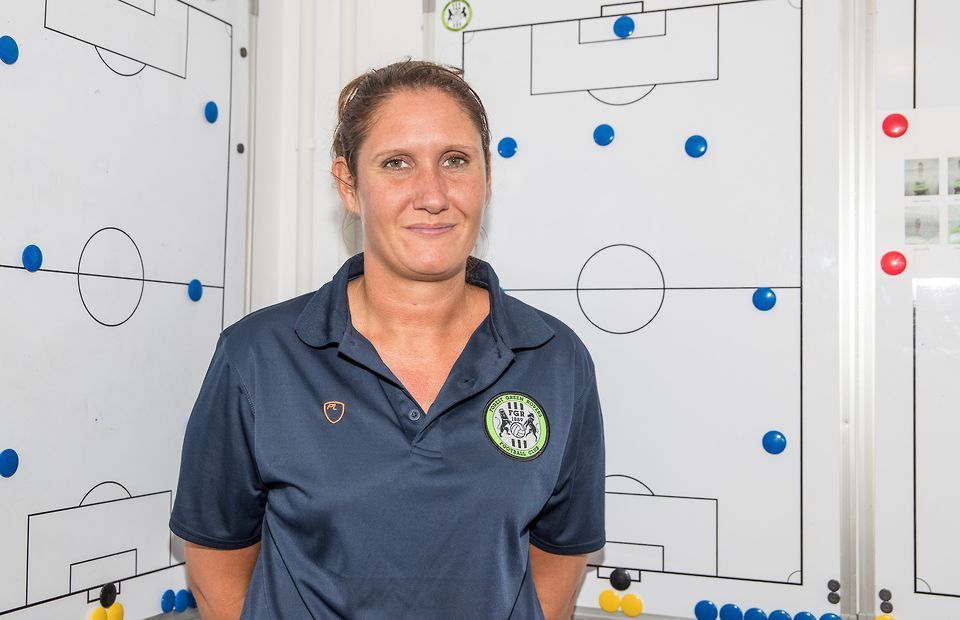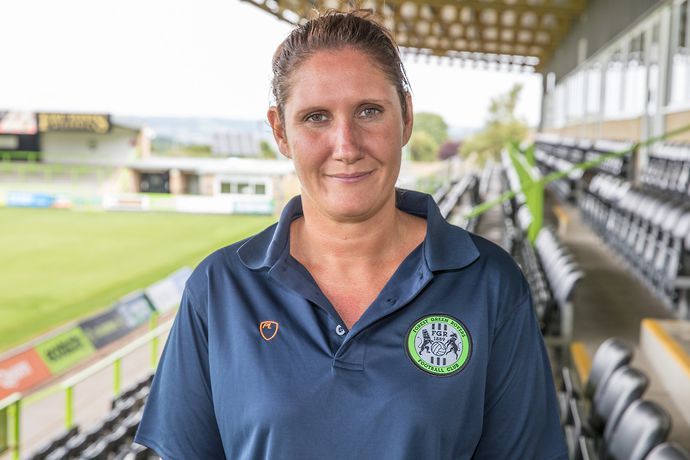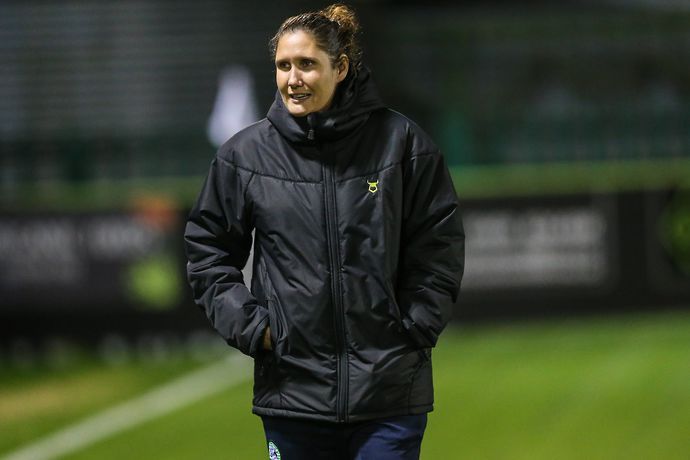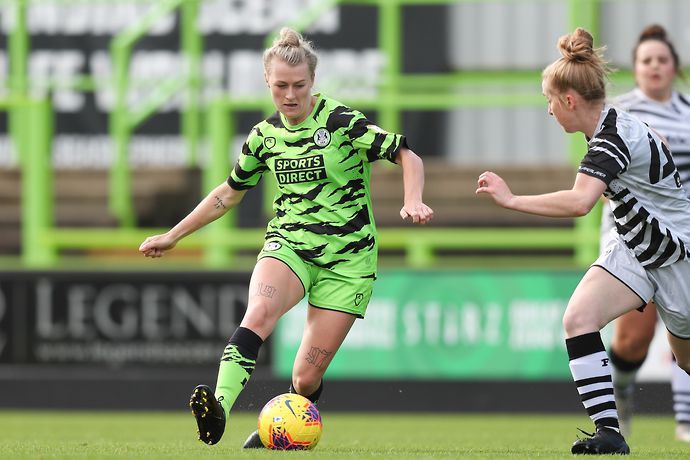Rugby may often be seen as the most popular sport in Wales, but Forest Green Rovers’ academy manager Hannah Dingley grew up in a football-obsessed family.
"I grew up in a small village in South Wales, and in our household, football was a massive deal," she tells GiveMeSport Women.
"So, when the World Cup was on telly, we'd all get around and watch it and get nice food in, or I’d be able to stay up late on a Saturday to watch Match of the Day. It was a really big thing in my household."
Despite her passion for football, Dingley was unable to play the sport at secondary school. She was able to join a women’s team aged 16, but soon realised her talents lay in coaching.
"I went to the University of Loughborough to study Sports Science," she explains. "I went into a teaching route, and then started doing the coaching alongside.
"I coached teams at university, I coached non-league teams, I coached women's teams, I coached kids teams, basically anywhere I could get experience, and tried to do my qualifications as I went along."
A full-time coaching opportunity at Burton Albion emerged, and Dingley had a "really positive" experience at the club for three years.
But League Two side Forest Green Rovers soon offered Dingley an opportunity she could not refuse – the chance to become the first woman to manage a club academy in English men's football.
Forest Green Rovers are known for bucking the trend. They became the first vegan football club in the world in 2015, and their stadium is known for its various eco-friendly innovations. It was this uniqueness that attracted Dingley to the Gloucestershire club.
"It was a really exciting project because there weren't a lot of things in place, it was sort of a blank canvas. I could really go and make it into what I wanted it to be.
"It’s been a really exciting opportunity, and it's a club that, as you well know, is really keen to do things differently, and not sort of do it the same way because that's how it's always been done.
"I think that's a really exciting sort of place to work, where you have the freedom, and almost the support and encouragement to be creative and to think outside the box and to do things differently."
Being a female coach in the male-dominated world of football has not always been easy, however.
"I always find the people you work with absolutely fine," Dingley says. "I've never had a problem with somebody I've actually worked with, in terms of the players, in terms of other coaches, because I think they see that you're good.
"The barriers are often external to your environment. I remember vividly going to a non-league game once, and almost not being let in.
"He was like, 'are you coming to support?', and I was like 'no, I’m one of the coaches, I'm not turning up two hours before kickoff in my boots!'
You get mistaken for a physio, or a medical person. It’s those little things that have always been frustrating.
Dingley even suspects she has not been considered for roles because of her gender.
"Don't get me wrong, I think it's hard for a lot of people to get opportunities. I think football is a very competitive industry to get into, to get full time jobs in.
"But I’ve got a Pro Licence, lots of experience, and I couldn't even get interviews at some clubs, for similar positions. As I say, it's very hard to sort of nail it down, and say they didn’t interview me because I'm a woman.
"But, you obviously start to think, how much are preconceived ideas about what an academy manager should look like, what a football coach should look like, affecting shortlisting processes?"
For Dingley, getting more women into football coaching is a two-pronged approach.
"Visibility is important – seeing more female coaches. It’s great that WSL games are on terrestrial television, because you see Emma Hayes on the touchline. If you can see it, you can be it.
"So having visibility at the top end really helps in terms of inspiring the next generation.
"But, there also needs to be a focus from grassroots and the bottom up. We try and recruit female coaches for some of our teams, and we find it really hard to find enough coaches who want to come into the game.
"So we’ve got to really start at grassroots and inspire people to embark on their coaching journeys."
Hayes, Chelsea boss and the most successful manager in the history of the Women's Super League, has long been touted as the first female coach to join a professional men’s side.
She was tipped for a position with League One’s AFC Wimbledon earlier this year, but Hayes said describing such a move as a "step up" was an "insult". She also claimed the club could not afford her.
Dingley praises Hayes for standing up for women’s football, but reveals she hopes a female manager in professional men’s football will "happen soon".
Dingley was also full of plaudits for Sports Direct, who are aiding Forest Green Rovers in their quest for more equality in football by elevating the club’s women’s team.
As part of their Equal Play initiative, Sports Direct has become the shirt sponsor of the women’s team.
This has helped the club move governance in-house, provide sport science and medicine support services for their female players, and aid the development of coaches.
"I think the lovely thing with that sponsorship is it's just for the women's team," Dingley enthuses. "How many times do you see the women’s team wear the same kit, and sort of piggyback the same sponsor?"
A massive company like Sports Direct coming in and just sponsoring the women's team, shows the value in the women's game.
"The players and the staff and everybody feel really valued as a group.
"They're really inspired to sort of develop and get better. It's really helped the team in terms of getting more support around equipment and boots, and allowing us to provide more sport science.
"It’s really helping the girls become more of a professional setup, which is going to help them with their performances on the pitch."
Thanks to Dingley, the landscape of football is changing. Her journey in coaching so far will have surely inspired other women to follow suit, and hopefully, they will no longer be mistaken for the physio.






















